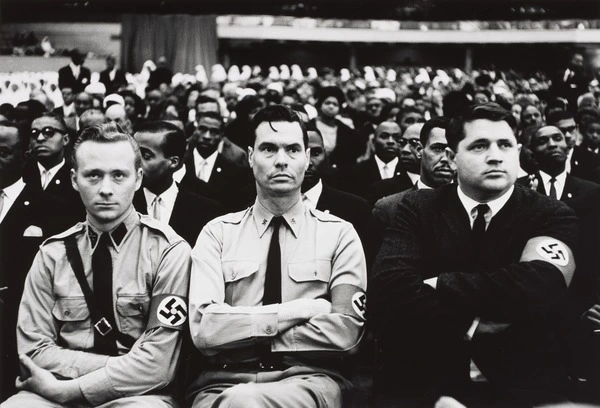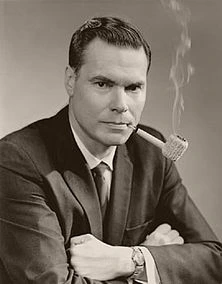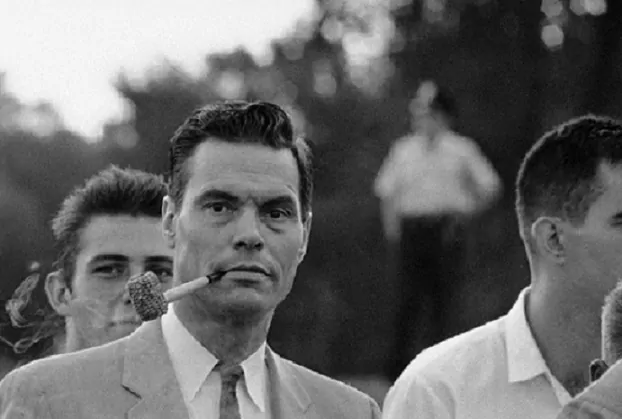The Complex Legacy of George Lincoln Rockwell: Understanding His Impact on American Society
A contentious figure in American history, George Lincoln Rockwell was most known for spearheading the far-right movement in the 1960s. Imagine a man with a fire enthusiasm for his ideals, often stirring up intense emotions in individuals around him. Rockwell established the American Nazi Party in order to further his extremist views, which included racism and fanatical nationalism. He was a divisive figure because of his audacious and provocative approach; some were captivated to his message, while others vehemently disagreed with it.
In a world when people are struggling with questions of identity and belonging, Rockwell’s life serves as a reminder of the profound power of beliefs to drive behavior and impact society.He was more than just a historical figure—he ignited discussions and arguments about hate, freedom, and the nuanced nature of American ideals. Knowing his tale enables us to investigate the shadowier sides of human ideas and the effects they may have on the environment.
The Controversial Legacy of George Lincoln Rockwell
Early Life and Influences
On March 9, 1918, George Lincoln Rockwell was born in Bloomington, Illinois. He had a conventional American childhood growing up in a middle-class family, but his perspective was formed by underlying conflicts. Since his father was a Navy officer, he was raised with a strong sense of discipline and patriotism. Later on, Rockwell’s extreme convictions would be entwined with his childhood, as the effects of World War II left him fascinated by military history and philosophy.
Following graduation, Rockwell enlisted in the United States Navy and saw action in World War II. His ideas of commitment to a perceived national identity and patriotism were further cemented by this military experience.However, his post-war existence was characterized by disappointment as he attempted to fit in with a culture that was changing quickly. His developing antipathy toward what he perceived as a deterioration in conventional values was spurred by the civil rights movement and the changing social scene in America, which laid the foundation for his future attempts.
It was during this time that Rockwell’s interest with fascism and extreme nationalism started to take shape. He began researching these radical ideas because he was dissatisfied with current American politics and was influenced by European ideologies. He felt that the country needed a strong, cohesive identity in order to fight the forces that he saw as threatening it. His path to the founding of the American Nazi Party was laid by this foundation.

Founding the American Nazi Party
George Lincoln Rockwell made the historic decision to create the American Nazi Party (ANP) in 1959, which would permanently place him in the annals of American history. The party was created as a direct response to what he perceived as the growing menace of communism and social liberalism. In order to draw attention to his extremist beliefs, Rockwell sought to disrupt and question social conventions by taking on the Nazi moniker. The goal of this daring and explosive strategic branding was to surprise a public that was mainly indifferent to his extreme beliefs.
Rockwell used the ANP as a forum to express his views on white supremacist, anti-Semitism, and his strong opposition to civil rights movements. He coordinated protests and public gatherings, frequently using theatrical devices to grab the attention of the media.He became well-known for his desire to take his opponents on head-on and was frequently featured in the media. Rockwell aimed to mobilize disgruntled folks who felt cut off from society developments by taking these steps.
The ANP encountered a great deal of opposition as it rose to prominence. Rockwell was often criticized and arrested as a result of his aggressive lectures and demonstrations, which frequently ended in bloodshed. He wasn’t deterred in spite of this, thinking that the publicity would eventually aid in the dissemination of his message. Because of the party, there was an unsettling undertone of radicalism in American culture, which made Rockwell a divisive figure who was hated by many and admired by others.
Ideological Beliefs and Rhetoric
White supremacist ideals and a fervent conviction in racial purity were at the center of George Lincoln Rockwell’s philosophy. He said that immigration and “racial mixing” were the root causes of the nation’s issues. Rockwell rejected diversity and used strong language in his speeches because he thought it threatened the foundation of American society. His radical opinions served as a rallying cry for other people who felt the same way he did. They weren’t just personal convictions.
Being a master of rhetoric, Rockwell frequently used strong language and thought-provoking images to pique his audience’s interest. He skillfully employed propaganda, writing books and pamphlets that supported his viewpoints and denigrated those he disagreed with.His approach struck a chord with people who were disenfranchised or lost, making his message understandable to people who may not have previously related with such radical ideas. His appeal was greatly influenced by his capacity to appeal to the anxieties and insecurities of the era.
Even if his worldview had inherent risks, Rockwell thought he was offering a different picture of America. He promoted a worldview that disregarded the complexity of a heterogeneous society and urged for a return to what he deemed to be “traditional values.” During a period of turmoil and transformation, certain groups responded favorably to Rockwell’s inflexible viewpoints, giving people who felt disenfranchised from the changing American environment a sense of community.
Controversies and Public Reactions
George Lincoln Rockwell’s life was rife with disputes that emphasized how polarizing his ideals were. His formation of the American Nazi Party sparked demonstrations and counter-demonstrations, garnering the interest of media outlets, law enforcement, and civil rights advocates. Every demonstration and public appearance he made frequently resulted in pandemonium, with his followers and critics breaking into violence. These conflicts brought to light the sharp differences that existed between American society in the 1960s as racial and identity concerns reached a boiling point.
The public’s response to Rockwell was not uniform; it ranged from blatant disapproval to an odd sort of attraction with his extreme concepts. Some were drawn to his boldness and message’s clarity, taking comfort in his stark depiction of a world split between allies and foes.Conversely, many considered him as a dangerous person whose beliefs may provoke hatred and violence. Because of his unwavering personality, Rockwell stayed in the public glare and made Americans confront the presence of such radical viewpoints in their culture.
The way that people perceived Rockwell and the ANP was greatly influenced by the media. His acts were frequently sensationalized in the media, which fueled the public’s curiosity and dread. However, as activists organized against him and his supporters, the attention his cause received also made room for counter-movements. In addition to commemorating a pivotal moment in American history, this ongoing controversy brought attention to the contradiction between the right to free speech and the negative effects of hate speech.

Death and Legacy
August 25, 1967, saw the horrific end of George Lincoln Rockwell’s life when he was slain outside of his Arlington, Virginia, office. Many were horrified by his death, which led to a lot of conjecture about what might have happened. Some saw it as the outcome of his unorthodox lifestyle and extreme ideas, while others said it was the product of a personal grudge. There were both jubilation and sadness from different factions in the immediate aftermath of this occasion, which signified a critical turning point.
Following his passing, conversations concerning hate groups in America centered on Rockwell’s legacy. His capacity to inspire disgruntled people and express a racial supremacist worldview had a long-lasting effect on the far-right movement.After his death, the American Nazi Party lost some of its clout, but the ideals he spread resonated with some extremist groups, resulting in a dangerous legacy of hate that would take on several forms over the years.
The nuances around free speech and the bounds of appropriate conversation are starkly brought to light by Rockwell’s life and deeds. Knowing Rockwell’s legacy helps us better comprehend the ongoing difficulties in combating hate in a society that aspires to equality and justice, especially as America continues to struggle with its own history of extremism and division. His tale serves as a cautionary and reflective tale, highlighting the necessity of being vigilant in defending democratic norms from the onslaught of extremist beliefs.







